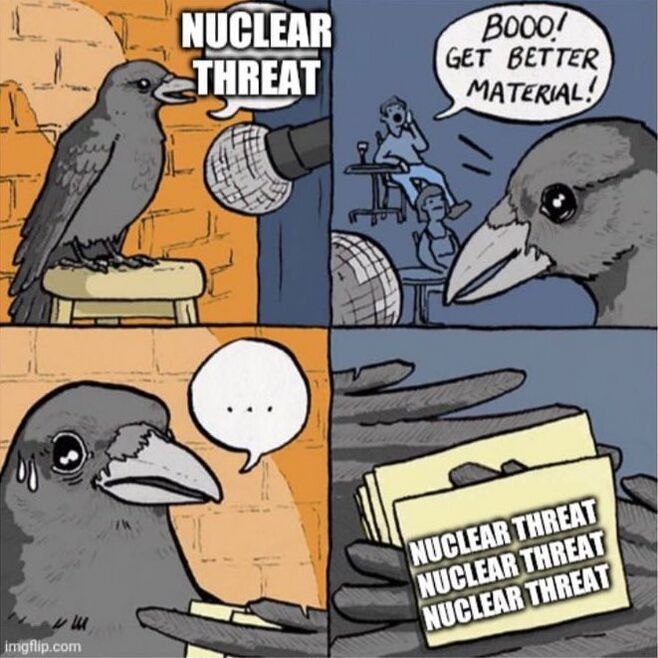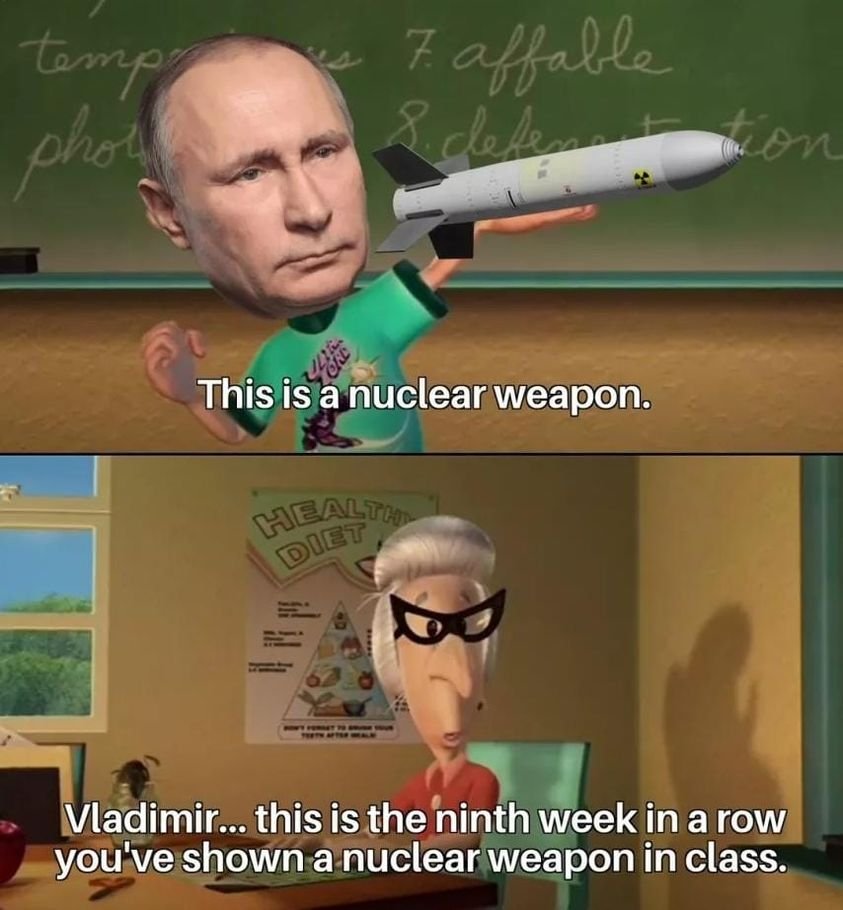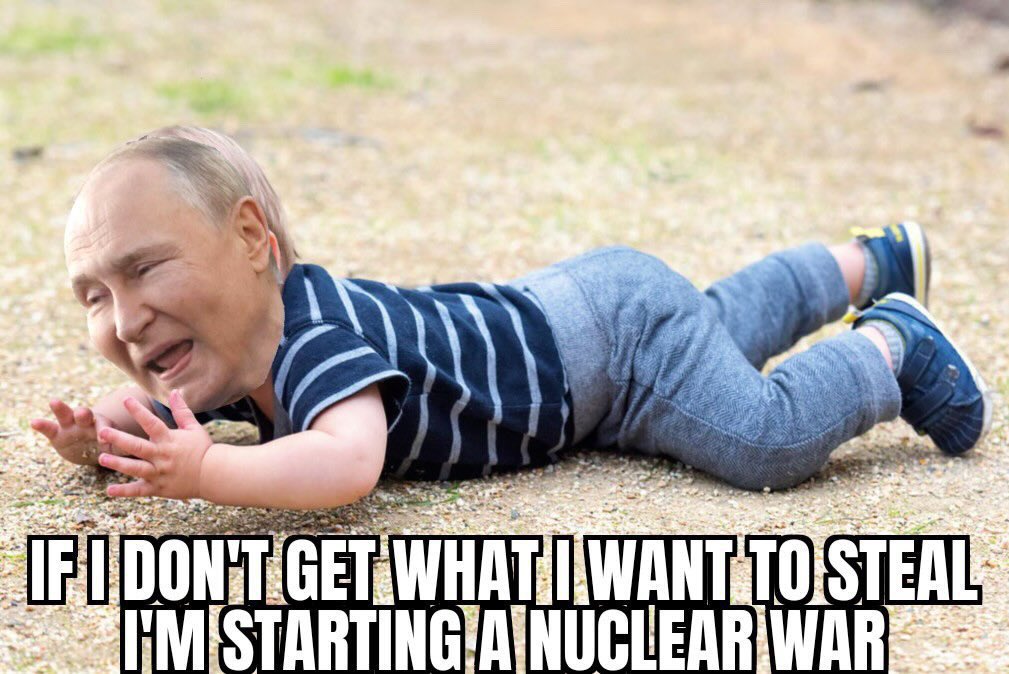In today's #vatnik soup and the newest edition of "You pronounced this nonsense, not me", I'll talk about the NATO expansion and how - according to Russia - NATO and the West are actually at fault for the war in Ukraine.
1/13
1/13
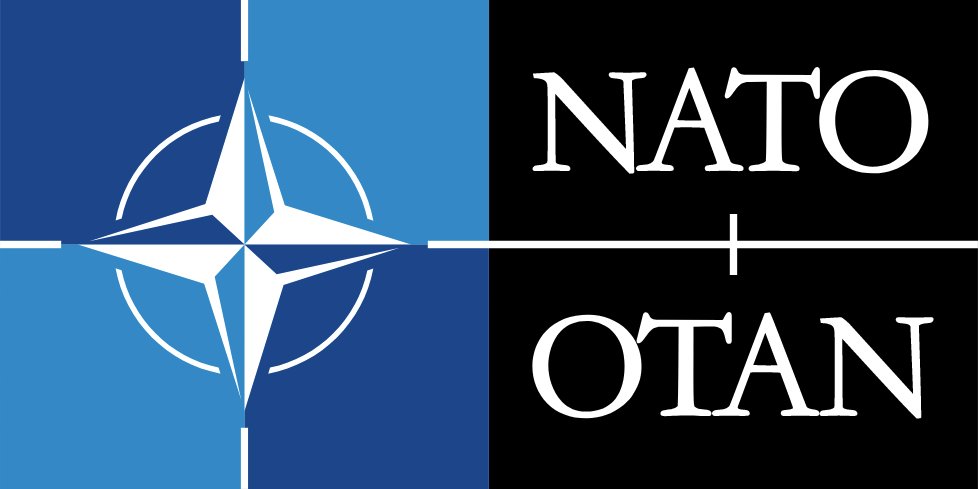
In 2007, around the same time when Russia started their "economic war" against Europe, Putin held a fiery speech at a Munich Security Conference in which he accused the West of expanding NATO, thus breaking a "solemn pledge" given by a US secretary ...
2/13
2/13

... of state James A. Baker to Mikhail Gorbachev in 1990. According to some, Baker promised Gorbachev that NATO would not expand to the east if Russia accepted Germany's unification.
But this was never agreed. What Baker actually promised was that NATO would expand ...
3/13
But this was never agreed. What Baker actually promised was that NATO would expand ...
3/13

... "not one inch eastward", but he was referring to Germany, not Eastern Europe. No agreements on hindering NATO expansion were signed, and Gorbachev himself confirmed that NATO's enlargement was not discussed.
Allegedly Putin never forgave Gorbachev for his "blunders".
4/13
Allegedly Putin never forgave Gorbachev for his "blunders".
4/13

Instead,the only formal agreement between the USSR and NATO countries was the Treaty of Final Settlement with Respect to Germany,which related only to troop placement & nuclear weapons inside Germany and former East Germany - & the promise made with this treaty has been kept.5/13 
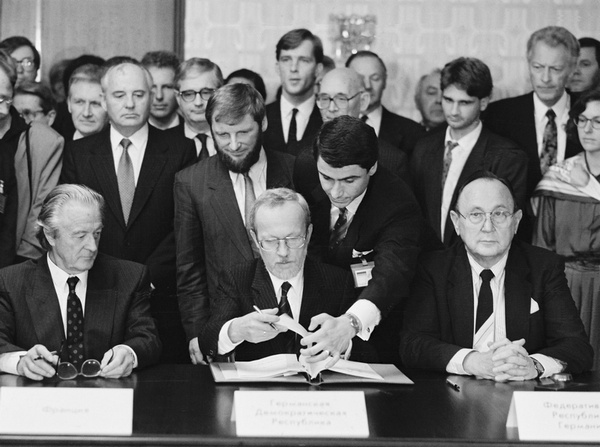
While some of the old Warsaw Pact countries were asking for membership to join NATO in 1997, the NATO-Russia Founding Act was signed at the same time. The act stated that "NATO and Russia do not consider each other as adversaries" and that NATO expansion ...
6/13
6/13

... is "a process that will continue". Before this, in 1993, Boris Yeltsin's wrote a letter to Bill Clinton saying that "Any possible integration of east European countries into NATO will not automatically lead to the alliance somehow turning against Russia."
7/13
7/13

Yet, academics like Stephen Cohen, John Mearsheimer, the Grayzone bloggers and other pro-Russian propagandists refer (or referred) to the Baker-Gorbachev "agreement" all the time, stating that the US and NATO betrayed Russia's trust.
8/13

8/13


Now, it's worth mentioning that NATO does not force anyone to join its ranks. Each country can put in their membership applications, and after it has been ratified by all other members, the country gets to join NATO. So, completely voluntary.
9/13
9/13

NATO has carried out an offensive military operation without the UN Security Council mandate once, in 1999 in Yugoslavia. This triggered some discussions on the operations legitimacy: its critics argued that the campaign violated international law and supporters argued...
10/13
10/13

... that the attack brought an end to the ethnic cleansing of Kosovo's Albanians.
During the 90's Russia had no interest (or resources) to stop the NATO expansion, and Hungary, Czech Republic and Poland joined the alliance in 1999.
11/13
During the 90's Russia had no interest (or resources) to stop the NATO expansion, and Hungary, Czech Republic and Poland joined the alliance in 1999.
11/13

Estonia, Lithuania and Latvia joined the club in 2004, as did Slovakia. Actually, of the members added between 1990 and 2020, all were either formerly part of the Warsaw Pact or former Yugoslavia.
12/13
12/13

It's strange how all these countries, previously oppressed by the USSR, wanted to join NATO as soon as they could.
For example in Hungary, 85% of voted in favor of joining NATO. It's almost like they were still afraid of Russia's imperialistic endeavours.
13/13
For example in Hungary, 85% of voted in favor of joining NATO. It's almost like they were still afraid of Russia's imperialistic endeavours.
13/13

Support my work: buymeacoffee.com/PKallioniemi
Related soups:
Russkiy Mir 1:
Russkiy Mir 2:
NATO vs Russia:
Related soups:
Russkiy Mir 1:
https://twitter.com/P_Kallioniemi/status/1605841722784632833
Russkiy Mir 2:
https://twitter.com/P_Kallioniemi/status/1606223666726961152
NATO vs Russia:
https://twitter.com/P_Kallioniemi/status/1599639652918390784
• • •
Missing some Tweet in this thread? You can try to
force a refresh



























